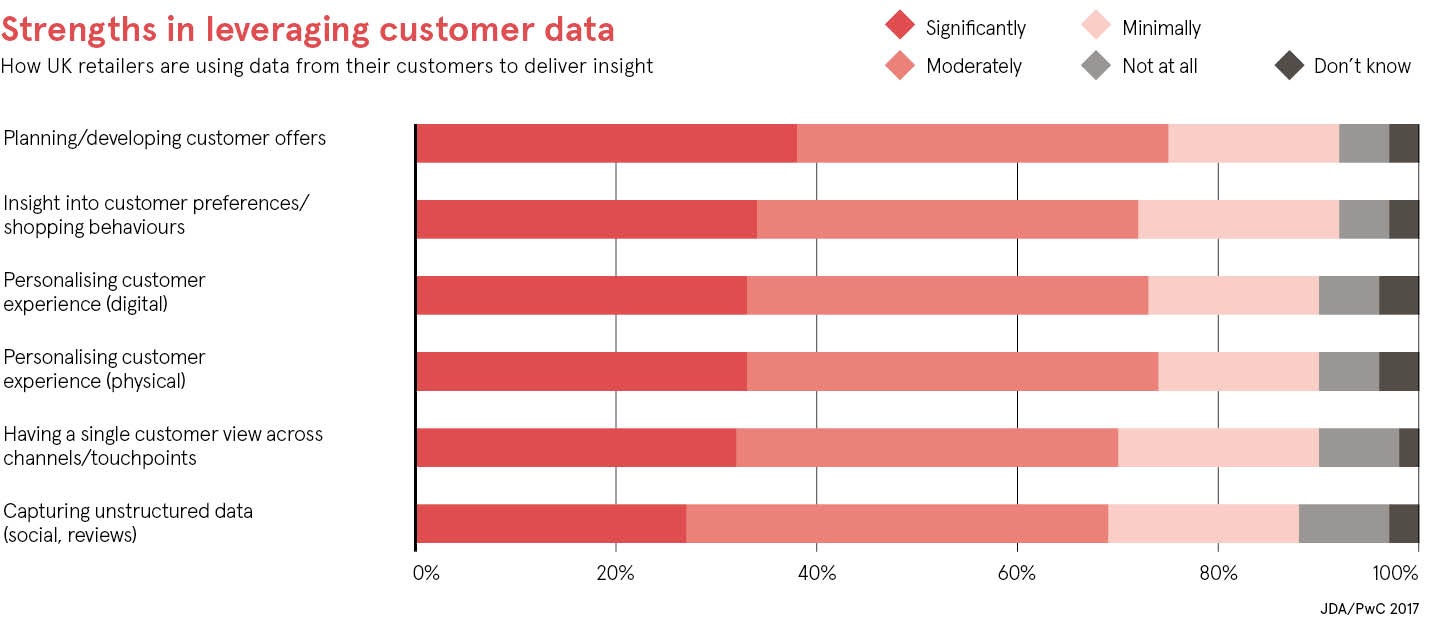Introduction of disruptive technologies has forever blurred the lines connecting the retail sector’s physical and digital spaces. Effectively implementing artificial intelligence (AI) tools and big data solutions to create a seamless customer journey is a major consideration for any forward-thinking enterprise. For retailers it can mean the difference between leading the market and falling behind.
Retail chief executives are best placed to recognise not only the potential of these new innovations, but also the need to possess the digital skills required to keep up to date with a constantly changing technological ecosystem. The same talents senior retail executives perfected in their journey to the C-suite around retail store operations will not be enough to drive forward the types of digital transformations needed to remain competitive in an increasingly complex global marketplace.
It’s understandable that retail bosses might be hesitant to embrace technologies and data analytics tools that they have little knowledge of, but as the skills required to lead a retail business expand, delegation will become even more important. The ability of chief executives to empower staff, all the way from in-store assistants to senior executives, to embrace data-based skills will make a major difference to long-term prospects.
While CEOs don’t necessarily need to be digital gurus, they do need to be capable of grasping the overall transformational journey of their business
“While CEOs don’t necessarily need to be digital gurus, they do need to be capable of grasping the overall transformational journey of their business and the role that digital plays in this,” says Dr Jonathan Reynolds, academic director of the Oxford Institute of Retail Management at Oxford University’s Saïd Business School. “Digital transformation is a team sport and retail CEOs need to build a trusted cadre of commercially savvy, as well as digitally experienced, senior talent to help them make the right judgments.”
According to a study by executive search firm DHR International, just one in twenty executive directors at UK-listed bricks-and-mortar retail firms come from an online background. Traditional retailers are now working overtime to meet the challenges brought by e-commerce giants such as ASOS and Very, with constantly evolving customer needs calling for executives to both learn new skills and employ more digitally focused staff.
“Data holds the key to understanding customer behaviour and the journey to purchases whether that’s done on mobile, PC, tablet or in-store. With such a vast amount of data produced, it’s no longer the sole responsibility for the business intelligence or IT teams to make sense of this,” explains Thibaut Ceyrolle, vice president, Europe, Middle East and Africa, at data warehouse-as-a-service provider Snowflake.
Customers expect to receive a highly personalised and frictionless shopping experience, with the emergence of internet of things solutions, big data, AI and in-store beacons making this a reality. From using data analytics to pull out actionable insights from customer purchasing history to using beacons to push relevant notifications to consumers in-store, the effective use of innovative technologies underlies the future of retail.
However, the right balance needs to be struck between solely focusing on data and fostering creativity and calculated risk-taking. Dr Reynolds believes that retail executives need to be more forgiving of experimentation and failure. “Failure is not always bad, but superficial backing for fashionable ideas driven by anecdotal evidence and glitzy, siloed innovation labs alone won’t cut it,” he says.
As competition from e-commence rivals intensifies, retail leadership will require softer skills, especially around openness to new technologies and being quick to adapt to change. It’s no longer enough to simply hire a chief digital officer and assign responsibility of the entire digital strategy to them; digital plans must be fully integrated into the overall business strategy.
While it’s important to lead from the top and ensure C-suite executives have relevant digital skills, in many cases the younger generation of employees will be digital natives and are best placed to put digital strategies into practice. Breaking down long-standing silos is difficult to achieve, but if chief executives are able to embrace change and invest in new technological solutions, all employees can utilise technology to meet customers’ needs.
“Existing legacy big data platforms are used by retailers due to familiarity, but are often cumbersome and require dedicated training to use them, resulting in more siloed data and specialist teams to manage it,” says Mr Ceyrolle.
“However, for CEOs who tap into the power of cloud-based data platforms, they will benefit from real-time and easier access to data, without the significant investment in up-skilling talent. All members of the workforce will be able to access this cloud repository easily, driving the speed at which insights can be gleaned about customer trends and reacting faster to their demands.”
Gaining access to the right talent who can help push forward the type of digital transformation needed to reach today’s connected consumers is vitally important for retail bosses as the future skillset required by top-tier retail leaders is rapidly changing. The current lack of e-commerce skills at retailers will see the traditional career path for many retail chief executives change, with the likely outcome of talent being recruited externally.
“We’re going to see more people joining retail from other sectors. Leaders will be collaborative, non-hierarchical, customer obsessed, with a desire to solve problems and constantly seek to add value, not necessarily seek to make profit. The dynamics are changing, so will the measures of success,” Ruth Harrison, managing director of business and technology consultancy ThoughtWorks, concludes.

